
科目: 来源:吉林省期中题 题型:阅读理解
查看答案和解析>>
科目: 来源:湖北省高考真题 题型:阅读理解
查看答案和解析>>
科目: 来源:江苏模拟题 题型:阅读理解
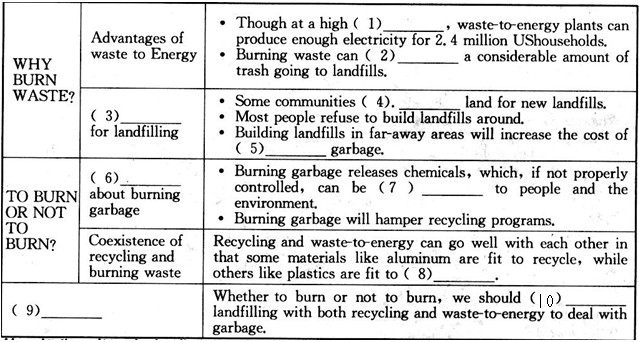
查看答案和解析>>
科目: 来源:安徽省模拟题 题型:阅读理解
| 阅读理解。 | ||
physical contact. Eat Immune-Boosting Foods Keeping your body strong and ready to fight infection is important in flu prevention. Fatty foods can make you feel lazy, and make your immune system working in an inactive and compromised way. So stick with whole grains, colorful vegetables, and vitamin-rich fruits. Avoid Alcohol In addition to being a mood calm and pleasant, alcohol is an immune restriction that can actually decrease your resistance to virus infections like AH1N1 flu. So avoid alcohol to keep your immune system strong. Drink Enough Water Drink 8-10 glasses of water each day to wash out poisonous things from your system and maintain system in a good state. Keep Psychically Active Adequate exercise-for example walking for 30 to 40 minutes 3 or 4 times a week-supports the immune system by increasing circulation, speeding the body's oxygen-taking-in, taking away poisonous things through sweat, and releasing tension and stress. So get moving! Be Careful of Surfaces This is as much a mindfulness exercise as anything else. Be aware of what public surfaces you touch, when you've shaken hands with someone, or when you're using something like a pen that others have recently used-and don't touch your face until you've had a chance to wash your hands. Know When to Get Help AH1N1 flu can look like regular flu, so don't feel like you necessarily are infected if you're exhibiting flu-like symptoms. But do consult your doctor if your symptoms are severe. | ||
| 1. Which of the following pictures is talked about in the passage? | ||
|
[ ] | ||
A. 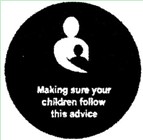 B. B. 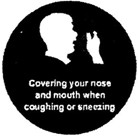 C. 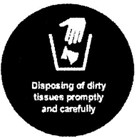 D. D. 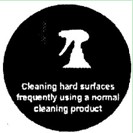 | ||
| 2. How can fatty foods affect a person? | ||
|
[ ] | ||
| A. They cause human s immune system inactive B. They help to keep one's body strong C. They are good for fighting infection D. They are favorable for a calm mood | ||
| 3. Drinking water and having enough exercise play the similar role in _____. | ||
|
[ ] | ||
| A. increasing circulation B. taking in more oxygen C. cleaning your system D. reducing your pressure | ||
| 4. What does the author strongly suggest in the last paragraph? | ||
|
[ ] | ||
| A. Don't touch your face! B. Avoid using others' pen! C. Don't fear getting infected! D. See a doctor if you're seriously ill! |
查看答案和解析>>
科目: 来源:同步题 题型:阅读理解
查看答案和解析>>
科目: 来源:0101 期末题 题型:阅读理解
查看答案和解析>>
科目: 来源:天津月考题 题型:阅读理解
 caused by cold. They are not. They are
caused by cold. They are not. They are  act again with infected people from the outside
act again with infected people from the outside  riter offered _____ examples to support his argument.
riter offered _____ examples to support his argument.查看答案和解析>>
科目: 来源:同步题 题型:阅读理解
查看答案和解析>>
科目: 来源:同步题 题型:完形填空
| 完形填空。 | |||
| Most healthy children are ready to eat almost anything offered to them.A child doesn't often dislike food 1 it is badlycooked. The 2 a meal is cooked and served is the most important and serving meals 3 will often improve a child'sappetite (食欲). Never ask a child 4 he likes or dislikes afood and never 5 likes or dislikes before him or allow 6 else to do so. If the father says he hates meat or the motherrefuses vegetables in the child's hearing, he is 7 to copytheir words. It is important for parents to teach a child to like 8 and he probably 9 . Nothing healthful should be leftout from the meal because of a supposed 10 . At meal time itis a good 11 to give a child a small 12 and let him 13 back for a second helping rather than give him too 14 . Do not talk too much to the child 15 meal time,but let him geton with his food, and do not 16 him to leave the tableimmediately after a meal or he will 17 learn to eat his food tooquickly 18 he can hurry back to his toys. On 19 conditions (情况) must a child be coaxed (哄骗) to eat 20 forced to eat. | |||
| ( )1. A. if ( )2. A. means ( )3. A. anxiously ( )4. A. whether ( )5. A. say ( )6. A. everybody ( )7. A. possible ( )8. A. something ( )9. A. should ( )10. A. dislike ( )11. A. point ( )12. A. breakfast ( )13. A. ask ( )14. A. much ( )15. A. on ( )16. A. agree ( )17. A. slow ( )18. A. so that ( )19. A. some ( )20. A. or |
B. until B. road B. interestingly B. what B. tell B. anybody B. friendly B. nothing B. may B. taste B. custom B. lunch B. come B. little B. for B. allow B. soon B. until B. any B. nor |
C. that C. way C. carefully C. that C. discuss C. somebody C. likely C. things C. will C. love C. idea C. supper C. return C. few C. by C. admit C. quick C. before C. such C. but |
D. unless D. method D. easily D. which D. speak D. nobody D. sure D. everything D. must D. imagination D. plan D. share D. take D. many D. during D. advise D. early D. though D. no D. neither |
查看答案和解析>>
科目: 来源:同步题 题型:阅读理解
查看答案和解析>>
湖北省互联网违法和不良信息举报平台 | 网上有害信息举报专区 | 电信诈骗举报专区 | 涉历史虚无主义有害信息举报专区 | 涉企侵权举报专区
违法和不良信息举报电话:027-86699610 举报邮箱:58377363@163.com